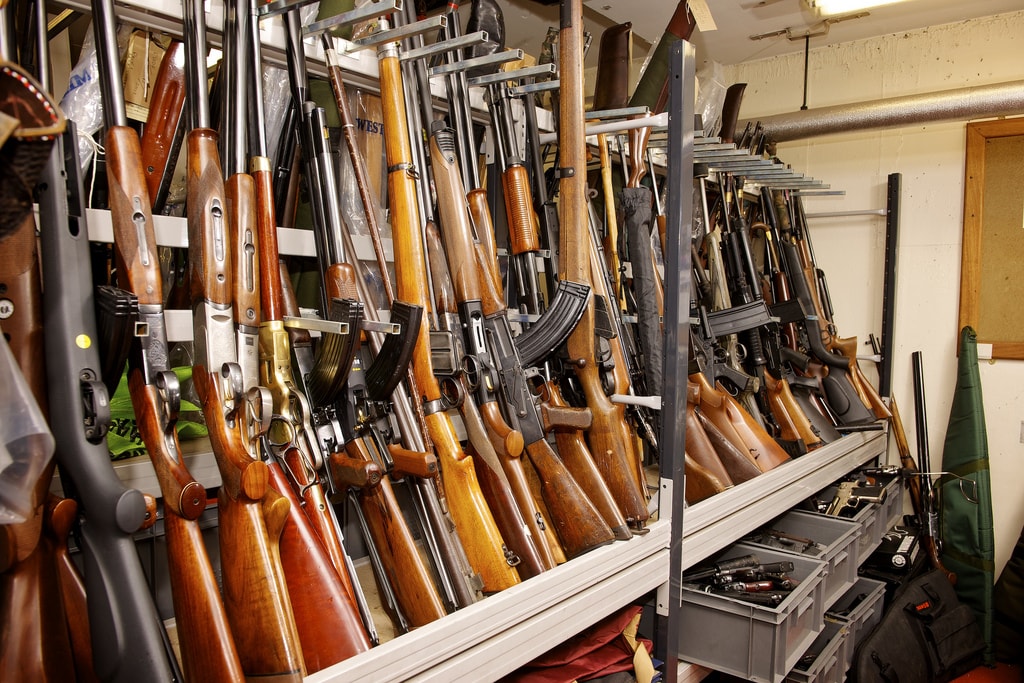
‘No company licensed to manufacture guns’
No company or individual has been licensed to manufacture guns in the country, the National Commission on Small Arms and Light Weapons (NCSALW) has declared.
It explained that although the Arms and Ammunition Act, 1972, states that one must obtain a licence or authorisation from the Ministry of the Interior before he or she could manufacture a gun, no company had been licensed to do so since the law was passed.
In an interview with the Daily Graphic, a Senior Programme Officer at the NCSALW, Mr Gyebi Asante, said all the local artisans or blacksmiths who were engaged in the manufacture of arms were operating illegally, since they did not have the licences to do so.
Illicit operations
He stressed that the Arms and Ammunition Act had a lot of gaps in it, explaining that it did not state clearly what guidelines should be followed to grant the licence, and even if it did, the criteria the local manufacturer had to meet, per global standards.
He also said as the law stood, anyone who purchased a weapon or arms from local manufacturers also violated the law, since he or she had purchased illicit arms and a weapon.
Read also
Small Arms Commission to assign codes to firearms
Gun owners refuse licence renewal - 1.1m illicit firearms in country
Busted! Cache of arms retrieved from hospital
“It is illegal to purchase locally manufactured arms. If you are arrested, you can be prosecuted per Section 192 of the Criminal Offences Act 1960 (Act 29), which makes it a first degree felony which can lead one to 10 years’ imprisonment,” he said.
Background
Last month, three persons were arrested for allegedly planning to overthrow the government.
On their arrest, items such as pistols with magazines were retrieved from them.
Others were pistol barrels, three smoke grenades, 22 improvised explosive devices, nine millimetre (mm) NATO AK47 rounds, two AK47 magazines, one long knife and 63 pieces of nine millimetre NATO rounds.
Also, in recent times there have been a number of reported cases of attacks on citizens and policemen whose weapons were stolen after they had been killed or attacked.
These have raised concerns about the proliferation of weapons in the system.
The legal posture
Mr Asante explained that although the local manufacturing industry served multiple sectors, clients and purposes, including hunters and criminals, the sector was not officially recognised.
The current legal posture towards the manufacture of small arms, he said, was a setback and challenge to the country in its quest to fight the proliferation of arms.
“Due to the fact that their activities are not regulated and are illegal, some of the manufacturers use substandard materials in their production, resulting in the manufacture of cheap and deadly weapons that may harm the one who use it,” he said.
Although a school of thought had suggested that the manufacture of local arms be authorised by the law, Mr Asante said “Ghana is not there yet to formally recognise the manufacture of weapons and arms”.
He argued that proper structures were needed to guide the manufacturers, since they could not be allowed to operate anyhow due to the risk posed by those weapons and arms, and stressed the need for the law to be reviewed, as a matter of urgency.
“We need proper structures to be put in place before considering the formal recognition of local arms manufacturing, especially considering the fact that regulation and enforcement are difficult in Ghana,” he said.
Alternative livelihood
Mr Asante further indicated that the commission was working to bring local artisans who manufactured arms under one umbrella, so that they could be given an alternative livelihood.
“When they come together, they will be sensitised to the dangers involved in the production of the arms and its implications, as some of them genuinely did not know the consequences of their actions.
“These people have the skills which they learnt from their fathers and grandfathers and so it cannot be taken away from them. So what we want to do is get them to channel their energies into the manufacture of different items,” he indicated.
He said the NCSALW was working to empower local artisans to enable them to improve on their skills to produce items such as hospital beds, cooking utensils and farming implements.
In addition, he said, it would engage the government to create the market for the artisans to manufacture hospital beds and farming implements, among others.
He said there was the need for the state to institutionalise a system of recognition for the work of local blacksmiths as a control strategy for locally manufactured small arms in the future.
Mr Asante further called for support for the commission, so that it could successfully implement the alternative livelihood empowerment programme.
